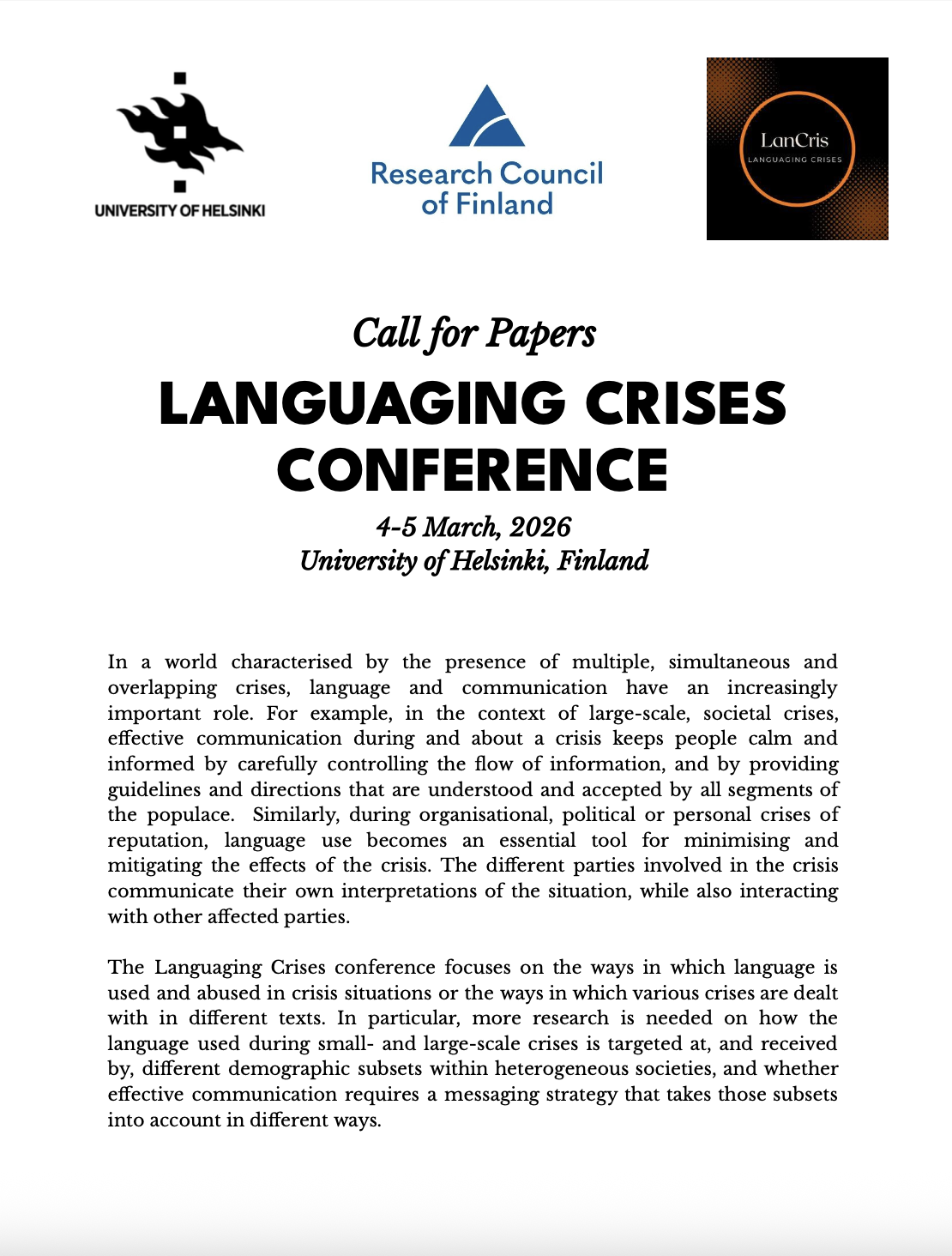Helsinki
Finlândia

In a world characterised by the presence of multiple, simultaneous and overlapping crises, language and communication have an increasingly important role. For example, in the context of large-scale, societal crises, effective communication during and about a crisis keeps people calm and informed by carefully controlling the flow of information, and by providing guidelines and directions that are understood and accepted by all segments of the populace. Similarly, during organisational, political or personal crises of reputation, language use becomes an essential tool for minimising and mitigating the effects of the crisis. The different parties involved in the crisis communicate their own interpretations of the situation, while also interacting with other affected parties.
The Languaging Crises conference focuses on the ways in which language is used and abused in crisis situations or the ways in which various crises are dealt with in different texts. In particular, more research is needed on how the language used during small- and large-scale crises is targeted at, and received by, different demographic subsets within heterogeneous societies, and whether effective communication requires a messaging strategy that takes those subsets into account in different ways.
The presentation proposals can approach communication and language use during crises from various perspectives, ranging from linguistics and language studies to discourse analysis, communication and social studies. They can also deal with both diachronic and synchronic communication about global and local crises and examine texts by public figures, the media, organisations or individuals. The crises investigated may include, but are not limited to, the following:
- health crises, accidents and traumas
- wars, conflicts and violence
- natural disasters and environmental crises
- economic/financial/political crises
- organisational crises and reputation crises
- inter/personal crises and life changes
- hateful and impolite situations
The confirmed keynote speakers are Tony McEnery (Lancaster University), Merja Koskela (University of Vaasa), Dario Del Fante (University of Ferrara), Heini Hakosalo (University of Oulu).
The language of the conference is English.